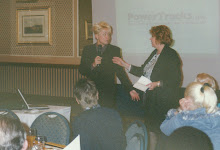The other day, I was listening to money guru, Jean Chatzky, on XM radio, talking with Ben Sherwood, and author of, The Survivors Club: The Secrets and Science That Could Save Your Life. Sherwood’s book is about human longevity and the behaviors people engage in to lengthen or cut short their lives.
One interesting concept of his: Low cost/high impact behaviors. In an era of buy low, sell high, at first glance this would appear to be a good strategy. As it turns out, this is only good when buying stock or real estate; not the way one should conduct their career.
An example of a low cost/high impact behavior is not buying life insurance. Not buying life insurance – even though you know you’re gonna’ die – has a high impact consequence; the same for not saving money, eating lots of fried food … even lying. All the stuff that one day might come back to haunt you.
How to tell if you have a low cost/high impact career?
Investing time in a job for the here and now is a lot like buying new shoes instead of putting that money in the bank. You can enjoy the shoes today, but the money you spent is gone forever while, eventually, the shoes wear out. To reduce your upfront costs in your career, you can skip the school route, take any job offered just to pay the bills, and remain unchallenged, but if this is not the job that literally catapults you out of bed each morning, you are risking paying an even bigger price later on. Low cost/high impact.
As I repeatedly remind my youngest stepson, and he will attest to this, the mantra I like to live by is: You can pay today or pay tomorrow, but either way you’re going to pay. It works with your health, savings, and your career. Like Benjamin Franklin’s fascination with accrued interest on savings, I am equally fascinated by the concept of how everything in life adds up.
By not investing in your career in obtaining the necessary education, attending helpful seminars, or waiting for that right opportunity to come along, even if it means there are sacrifices to be made in the process, you miss out on having the opportunity to fully realize what you are capable of doing.
Executive Onboarding Note: The Importance Of The Confidence To Be Open To
Help
-
While executive onboarding, get help. If it’s offered, take it. If it’s not
offered, find it.
The post Executive Onboarding Note: The Importance Of The C...
7 years ago




No comments:
Post a Comment